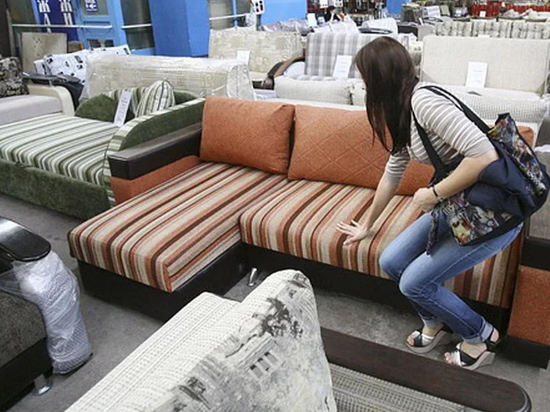Prices for imported furniture predicted to increase by 60% from October 1
[ad_1]

Western sanctions hit hard on the business of Russian furniture factories. Domestic furniture makers turned to the Government of the Russian Federation with a proposal to introduce retaliatory protective import duties of 60% for competitors from unfriendly states.
Recall that the EU countries have completely banned the supply of Russian furniture to their territory. Fearing secondary sanctions from the West, other states also imposed restrictions, which rebounded on the income of the national industry. The Association of Furniture and Woodworking Enterprises (AMDPR) proposed that the Ministry of Industry and Trade introduce a protective import duty of 60% on the import of furniture and raw materials for its manufacture – wood boards and plywood – from unfriendly countries. This measure will bring domestic enterprises an additional 50 billion rubles in the next year, the association’s letter says. The ministry promised to consider the initiative before the end of September.
As the general director of AMDPR Timur Irtuganov explained to MK, a difficult situation has now developed in the industry. Demand for products is falling, and the cost of production is growing due to logistical problems and, consequently, the rise in price of imported components. Our furniture makers have to cut prices. The industry runs the risk of becoming unprofitable from a profitable and export-oriented one. European furniture, despite EU sanctions, continues to be imported into Russia, including through Turkey. “It turns out that the EU market is closed for domestic producers, and foreign companies continue to supply products to us as if nothing had happened. In order to prevent our furniture makers from being squeezed out of the domestic market, restrictions are simply necessary,” Irtuganov emphasized.
According to him, Russian furniture in terms of price-quality ratio is now one of the best in the world: we are not inferior to leading Western companies neither in design, nor in product quality, warranty periods, use of materials and manufacturability. Domestic producers are able to saturate the entire domestic market in terms of assortment, price categories, and taste needs.
AMDPR proposed extending restrictive measures to most types of furniture – kitchens, cabinet, upholstered furniture, mattresses, MDF, OSB, chipboard, plywood. An exception is made only for products that are not produced in our country. “Some items are either not produced at all or in insufficient quantities, so we do not want to deprive domestic producers of raw materials and components, and buyers of the desired goods. Moreover, furniture made from exotic or rare species of trees: bamboo, rattan, reed, willow, as well as plastic will be exempted from duties,” Irtuganov explained.
There are no duties for the EAEU states. And for other friendly countries that are not members of this organization, it is proposed to set the import rate at 10%. It was logical to suggest that if these initiatives were adopted, AMDPR should increase imports from friendly countries, primarily from the PRC. But experts think otherwise.
“China is undoubtedly the leader in furniture production in the world now, but the furniture from there is mostly of poor quality and their products remain competitive only due to the low price,” Irtuganov said. — It is quite easy for Russian manufacturers to compete in such conditions. Moreover, the price of Chinese furniture cannot be too low due to long logistics.
Independent analysts generally supported the furniture makers’ idea. But with reservations.
“Given the circumstances, we consider the introduction of duties a justified decision on the part of Russia,” Kirill Lapin, managing partner of the international consulting group Seitenberg (Austria), told MK. However, this cannot be a permanent measure. In the absence of competition, the furniture market in Russia may significantly lag behind current trends in design and product quality.
According to Lapin, the greatest prospects will open up for enterprises that use the new opportunity to develop marketing strategies and enter new export markets, primarily in Asia and Africa. “In order to achieve these goals in the current difficult economic situation, furniture production needs other state support: concessional loans, reduced tax burden, subsidies and all-round support for the implementation of plans for the export of products,” the expert added.
It should be noted that the Government of the Russian Federation finally paid attention to the forestry complex of the Russian Federation, which had been criminalized for a long time, which greatly undermined its raw material base. From January 1, 2022, the export of coniferous and valuable round timber is prohibited. From January 1, 2023, the federal information system of the forestry complex will start working. Specialists also offer other measures to support the industry.
“The inclusion of minimal furnishings in the criteria for standard housing will have a significant impact on the entire industry and will ensure the operation of enterprises in the usual mode,” Irtuganov said. In his opinion, changes at the legislative level will open up new marketing opportunities for manufacturers, which will help them avoid significant losses due to falling demand, and buyers will be able to purchase furniture 40-50% cheaper, since developers will be able to buy it in bulk.
Newspaper headline:
Furniture makers are renovating the market
[ad_2]
Source link






